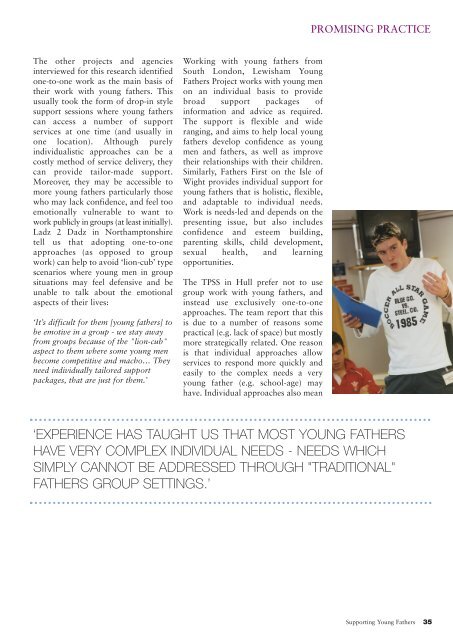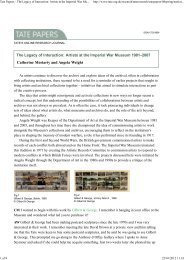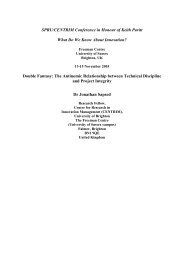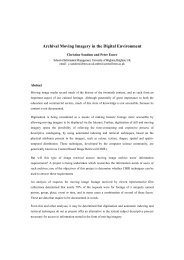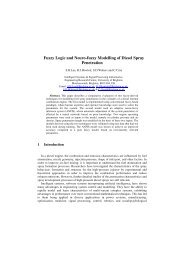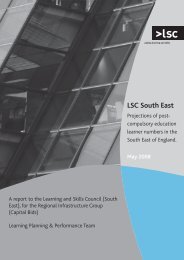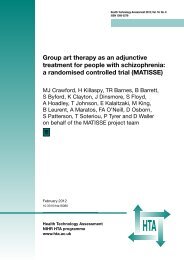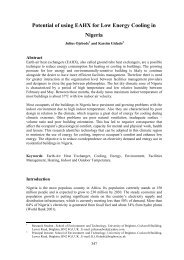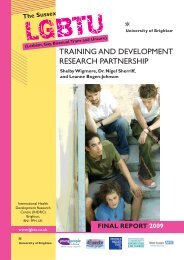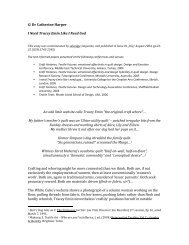TOP TIP - University of Brighton Repository
TOP TIP - University of Brighton Repository
TOP TIP - University of Brighton Repository
Create successful ePaper yourself
Turn your PDF publications into a flip-book with our unique Google optimized e-Paper software.
The other projects and agencies<br />
interviewed for this research identified<br />
one-to-one work as the main basis <strong>of</strong><br />
their work with young fathers. This<br />
usually took the form <strong>of</strong> drop-in style<br />
support sessions where young fathers<br />
can access a number <strong>of</strong> support<br />
services at one time (and usually in<br />
one location). Although purely<br />
individualistic approaches can be a<br />
costly method <strong>of</strong> service delivery, they<br />
can provide tailor-made support.<br />
Moreover, they may be accessible to<br />
more young fathers particularly those<br />
who may lack confidence, and feel too<br />
emotionally vulnerable to want to<br />
work publicly in groups (at least initially).<br />
Ladz 2 Dadz in Northamptonshire<br />
tell us that adopting one-to-one<br />
approaches (as opposed to group<br />
work) can help to avoid ‘lion-cub’ type<br />
scenarios where young men in group<br />
situations may feel defensive and be<br />
unable to talk about the emotional<br />
aspects <strong>of</strong> their lives:<br />
‘It’s difficult for them [young fathers] to<br />
be emotive in a group - we stay away<br />
from groups because <strong>of</strong> the "lion-cub"<br />
aspect to them where some young men<br />
become competitive and macho… They<br />
need individually tailored support<br />
packages, that are just for them.’<br />
Working with young fathers from<br />
South London, Lewisham Young<br />
Fathers Project works with young men<br />
on an individual basis to provide<br />
broad support packages <strong>of</strong><br />
information and advice as required.<br />
The support is flexible and wide<br />
ranging, and aims to help local young<br />
fathers develop confidence as young<br />
men and fathers, as well as improve<br />
their relationships with their children.<br />
Similarly, Fathers First on the Isle <strong>of</strong><br />
Wight provides individual support for<br />
young fathers that is holistic, flexible,<br />
and adaptable to individual needs.<br />
Work is needs-led and depends on the<br />
presenting issue, but also includes<br />
confidence and esteem building,<br />
parenting skills, child development,<br />
sexual health, and learning<br />
opportunities.<br />
The TPSS in Hull prefer not to use<br />
group work with young fathers, and<br />
instead use exclusively one-to-one<br />
approaches. The team report that this<br />
is due to a number <strong>of</strong> reasons some<br />
practical (e.g. lack <strong>of</strong> space) but mostly<br />
more strategically related. One reason<br />
is that individual approaches allow<br />
services to respond more quickly and<br />
easily to the complex needs a very<br />
young father (e.g. school-age) may<br />
have. Individual approaches also mean<br />
PROMISING PRACTICE<br />
‘EXPERIENCE HAS TAUGHT US THAT MOST YOUNG FATHERS<br />
HAVE VERY COMPLEX INDIVIDUAL NEEDS - NEEDS WHICH<br />
SIMPLY CANNOT BE ADDRESSED THROUGH "TRADITIONAL"<br />
FATHERS GROUP SETTINGS.’<br />
Supporting Young Fathers 35


